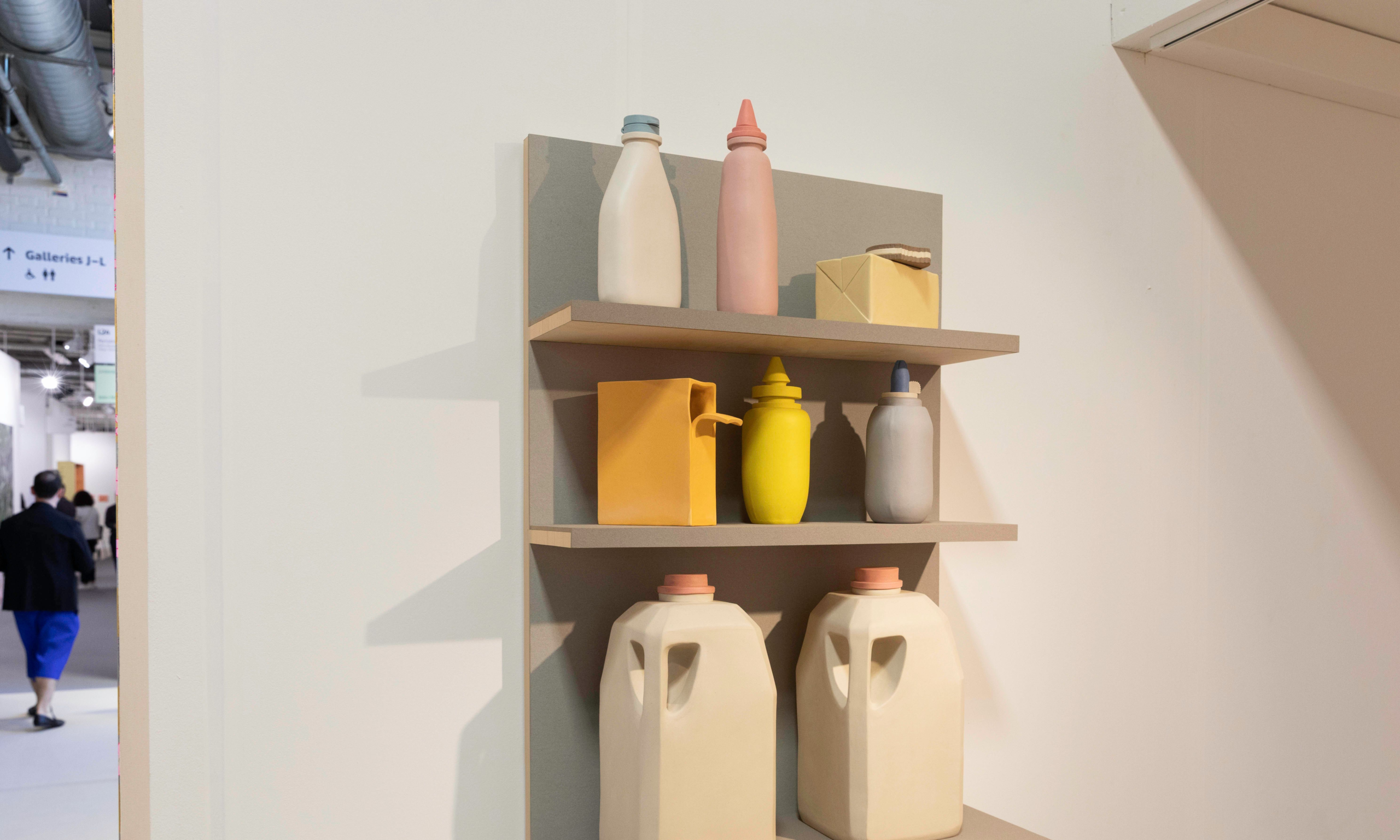Genesis Belanger, Perrotin David Owens
After launching at Art Basel in Miami Beach and later in Hong Kong, Kabinett—an initiative that sees select galleries stage small thematic presentations in their stands—has arrived at Art Basel’s flagship Swiss fair. “Exhibitors typically use our fair to show the full breadth of their programme, so we are inviting them to focus on one artist or theme,” says Vincenzo de Bellis, Art Basel’s director of fairs and exhibition programmes, of the “stand-within-a-stand” concept. With 14 galleries participating this year, a number of the presentations have been created especially for Art Basel, while others focus on historical works by lesser-known artists from the gallery’s programme, helping to “further diversify the offerings of the fair”, De Bellis adds. Here’s our pick of five mini-presentations.
David Byrd, Anton Kern David Owens
Anton Kern
The late painter David Byrd is given the spotlight after a life spent in relative obscurity. Although he is not strictly considered an outsider artist because he received formal training, his work was not publicly exhibited until just a few years before his death in 2013. Having struggled to find a stable career as an artist, Byrd worked for 30 years in the psychiatric ward of a hospital, which inspired his work. The group of paintings from the late 2000s, brought by Anton Kern gallery, includes scenes set in a hospital, and bears stylistic influences from Cubism, American Realism and Regionalism ($35,000-$70,000).
Henrik Hakansson, Franco Noero and Meyer Riegger David Owens
Franco Noero and Meyer Riegger
The galleries Franco Noero and Meyer Riegger have shown at neighbouring stands at Art Basel for years, and now remove a separating wall to present together new works by the artist Henrik Hakansson. At its centre is a large mobile sculpture (€90,000)—a nod to Alexander Calder—which is made from stuffed starlings hanging on iron rods. Hakansson’s preoccupation with the natural world is further demonstrated by six abstract paintings from 2020 (€14,000 each), which incorporate “traces of insects” in their materials, as well as sugar, yeast and fruits.
Genesis Belanger, Perrotin David Owens
Perrotin
Working in a multitude of materials including porcelain, wool, steel and plywood, Genesis Belanger is showing six pieces with Perrotin ($75,000-$110,000) as part of an installation called One Bite of the Ripest Fruit. Several of the sculptures appear almost like paintings when viewed from straight on, “as if Claes Oldenburg and Giorgio Morandi had a baby”, says Valentine Blondel, the gallery’s senior director. Like fellow US artist Jeff Koons, Belanger’s background is in advertising, and her works are every bit as seductive.
Anri Sala, Esther Schipper David Owens
Esther Schipper
It is not common to see so many works from Ari Sala’s Untitled (map/species) (2018-22) in one place. In these diptychs—eight of which are presented by Esther Schipper (€35,000 each)—Sala reworks maps of countries and geopolitical territories, skewing representations of land masses so that they fit within the boundaries of the found etchings of the biological species that they are exhibited alongside. In doing so, Sala hopes to convey how classification and ordering often went hand-in-hand with colonisation, as well as allowing viewers to draw more poetic parallels between the fauna and geographies represented.
Petrit Halilaj, Kurimanzutto David Owens
Kurimanzutto
When Petrit Halilaj was just 13, the artist and his family fled their home in war-torn Kosovo, spending more than a year in a refugee camp in Albania. There, Halilaj began to draw images of violence—but also exotic birds and doves. In one sketch, he depicted himself as a bird flying away over the horizon. Representing migration as well as freedom, feathered creatures have been a mainstay of Halilaj’s practice ever since. At Art Basel, Kurimanzutto is showing sculptures created from brass and natural feathers from birds including the ostrich and silver pheasant (€25,000-€45,000).

